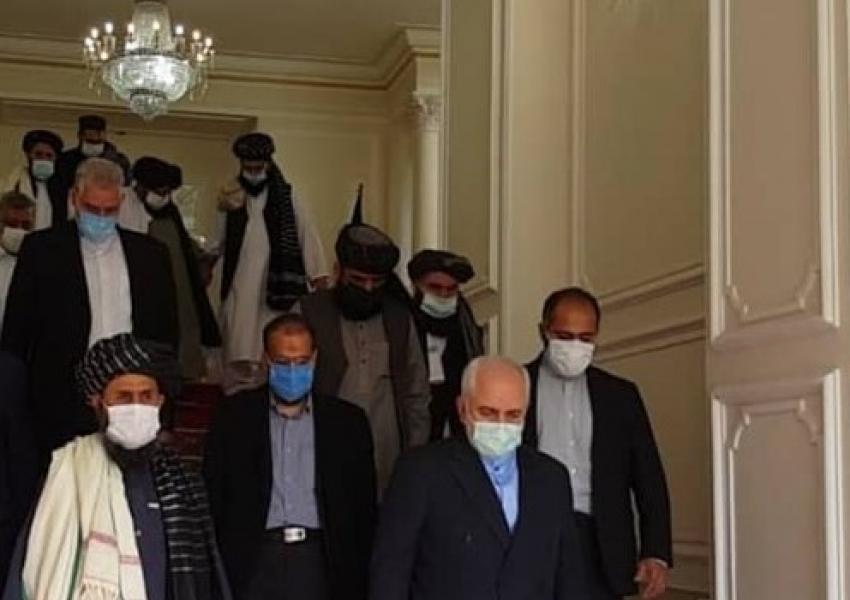
Iran Open To UN-Led Afghan Talks As US Keeps Option Of Troop Pull-Out By May 1
Iran may join a United Nations-facilitated conference on Afghanistan, Foreign Ministry spokesman Saeed Khatibzadeh said on Monday [March 8], after United States Secretary of State Antony Blinken proposed talks with representatives of Russia, China, Pakistan, Iran, India and the US.
Khatibzadeh said at his weekly press conference that Iran had not received notice of the conference but would “consider [attending] after receiving an [official] invitation from the UN.” Afghanistan’s Tolonews channel on Sunday reported that to help stalled talks between the Afghan government and the Taliban, Blinken in a letter to President Ashraf Ghani had made several proposals, including the UN-convened conference “to discuss a unified approach to supporting peace in Afghanistan.”
“It is my belief that these countries share an abiding common interest in a stable Afghanistan and must work together if we are to succeed,” Blinken wrote. He said that Zalmay Khalilzad, the US Special Representative for Afghanistan Reconciliation, would share proposals aimed at a negotiated settlement and ceasefire between the government and the Taliban.
Khatibzadeh on Monday also denied Iran had “direct or indirect” contacts with the US over reviving the 2015 Iran nuclear deal, the Joint Comprehensive Plan of Action (JCPOA). Dismissing a reporter’s suggestion that Afghanistan could be a “bargaining chip” in facilitating JCPOA revival, Khatibzadeh said Iran would not take “a utilitarian view” of relations with “its friends in the region” and that Afghanistan was “a very important area for us on its own.”
Iran has been playing a greater role in Afghan affairs as the US has stepped back, with President Donald Trump in February 2020 agreeing with the Taliban, who control much of the country, to withdraw all US troops by May 1, 2021, and cutting the US troop presence from 13,000 to 2,500. In his letter, Blinken said the Biden administration had “not ruled out any options,” and was still considering “the full withdrawal of the US forces” by May 1 while acknowledging he was “still concerned that the security situation in Afghanistan will worsen and that the Taliban could make rapid territorial gains.”
A Taliban delegation led by deputy head of the group’s political office Mullah Abdul Ghani Baradar arrived in Tehran on January 26 for a five-day visit. The Taliban met with officials including Foreign Minister Mohammad Javad Zarif, who, according to the website of the Iranian Foreign Ministry, welcomed the idea of an “inclusive government” in which all Afghan “ethnicities and political groups” were present. The Taliban visit was made with the knowledge of the Afghan government, Iranian officials said.









